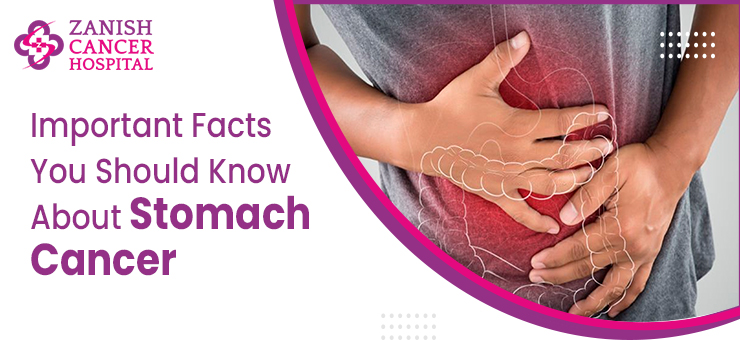Stomach cancer, also known as gastric cancer, is a formidable health challenge that affects millions of people worldwide. Despite its prevalence, there is still a lack of awareness about this disease. In this blog, we will delve into some crucial facts you should know about stomach cancer, including its risk factors, symptoms, diagnosis, and treatment options.
Prevalence of Stomach CancerStomach cancer ranks as the fifth most common cancer globally, with a significant impact on public health. It is more prevalent among men than women.
Causes of Stomach CancerUnderstanding the risk factors associated with stomach cancer is essential for prevention and early detection. Some of the key risk factors include:
Helicobacter pylori InfectionThis bacterium is a known risk factor for stomach cancer and is responsible for causing chronic gastritis and stomach ulcers.
Dietary FactorsA diet rich in salty, smoked, and pickled foods, as well as low fruit and vegetable consumption, is associated with an increased risk.
Tobacco and Alcohol UseSmoking and excessive alcohol consumption can elevate the risk of stomach cancer.
Family HistoryA family history of stomach cancer can increase one's susceptibility.
Age and GenderStomach cancer is more common in older adults and tends to affect men more frequently than women.
Symptoms of Stomach CancerRecognizing the signs and symptoms of stomach cancer is crucial for early diagnosis. Common symptoms include:
• Unexplained Weight Loss • Persistent Abdominal Pain or Discomfort • Nausea and Vomiting, sometimes with Blood • Difficulty Swallowing • Feeling of fullness during meals • Bloody Stools or Vomit
Early Detection and Diagnosis:Diagnosing stomach cancer in its early stages can significantly improve treatment outcomes. Being aware of symptoms and getting them checked by a doctor will help early diagnosis. Diagnostic methods employed in detecting stomach cancer include:
EndoscopyThis procedure involves the insertion of a thin, flexible tube with a camera (endoscope) into the stomach to visualize and biopsy suspicious areas.
ImagingCT scans, PET scans, and MRIs may be used to determine the extent and stage of cancer.
Blood TestsSome blood tests can help detect specific markers associated with stomach cancer.
Treatment OptionsThe stage of stomach cancer at the time of diagnosis plays a crucial role in determining treatment options. Treatment may include:
Surgery:Depending on the stage and location of the cancer, surgery may involve removing part or all of the stomach (gastrectomy) or nearby lymph nodes.
ChemotherapyPowerful drugs are used to kill cancer cells or slow their growth.
Radiation TherapyHigh-energy X-rays are targeted at cancer cells to destroy them or shrink tumours.
Targeted TherapyMedications that target specific molecules involved in cancer growth and spread are used to destroy cancer cells.
Supportive CareCoping with a stomach cancer diagnosis can be challenging. Supportive care, including nutritional counseling, pain management, and emotional support, is vital for patients and their families.
Lifestyle Changes that may Reduce Stomach Cancer RiskWhile stomach cancer cannot always be prevented, lifestyle changes can reduce the risk. These include:
• Adopting a healthy Diet rich in fruits and vegetables and low in processed and high-salt foods • Quitting smoking • Limiting alcohol consumption • Treating all infections promptly and completing the treatment regimen
Stomach cancer is a significant health concern that requires increased awareness for early detection and improved treatment outcomes. Knowing the risk factors, symptoms, and available treatment options can make a major difference in the fight against this disease. Regular medical check-ups and a healthy lifestyle can help reduce the risk of stomach cancer and promote overall well-being. If you suspect any symptoms or have risk factors, don't hesitate to consult the cancer specialist at Zanish Cancer Hospital. We provide comprehensive support and effective treatment for all cancers.






